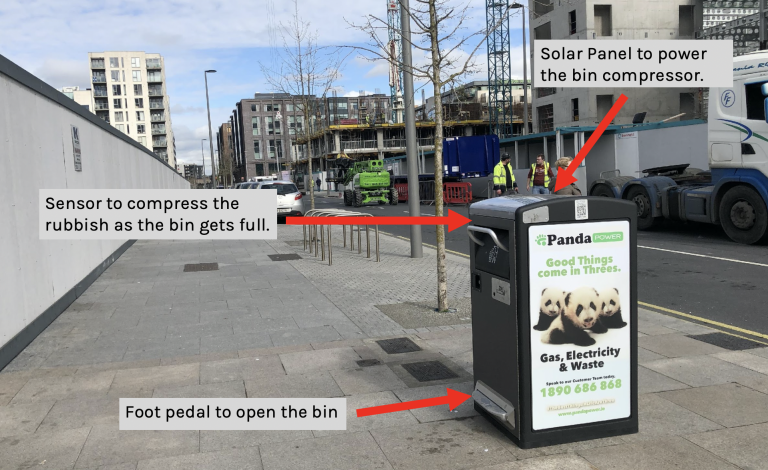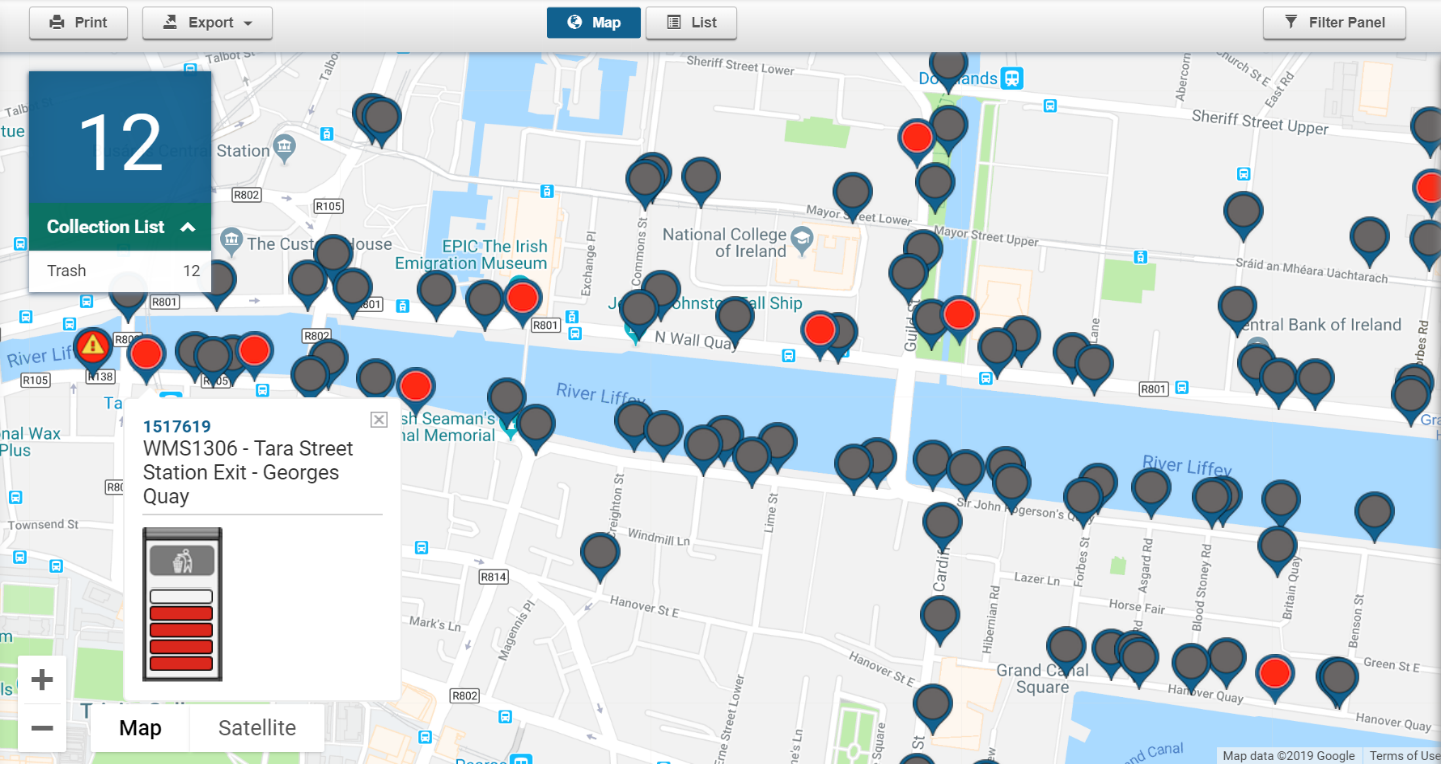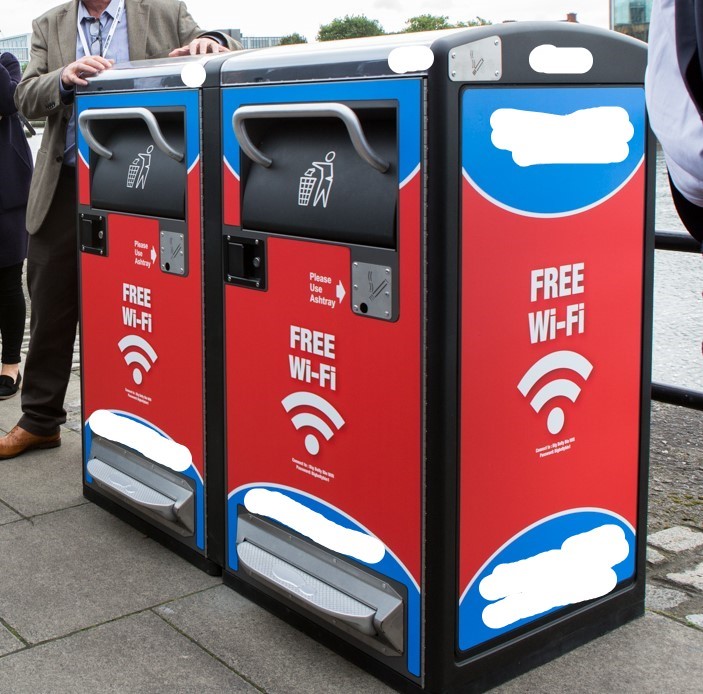Managing urban waste is a problem all cities grapple with. With more than 3,500 bins across the Dublin City Council area, Dublin City Council wanted to understand if ‘smart bins’ could provide a more efficient way to managing waste. Importantly, the project also investigates an innovation services leasing model that has additional sensors for assessing people flow and air quality among others; WiFi connectivity for the public; hosting capabilities for telecoms equipment; as well as advertising and community messaging opportunities.
Smart Bins for optimised waste collection and other innovative services
Project Objectives

Dublin City Council has partnered with Big Belly Bins (supplied by Irish company Kyron Street) to install 110 smart bins across the Dublin Docklands area over a 30-month period. Up to 5 times of waste holding capacity can be obtained through these smart bin compared to an ordinary bin of the same size. This is done through an automated compactor that compresses the waste on an hourly average basis, powered by photovoltaic solar panels on the roof of the bin.
The sensor provides real-time information to the city council waste management operations teams showing the capacity of each of the bins. This allows management and operational staff to see how much waste each bin contains in terms of percentages, for example, 20%, 60%, 80% full etc. The sensors also communicate which bins have not reached their capacity but are obstructed, typically with bulky items such as a pizza box or broken umbrellas. This information is easily accessed through an internet-enabled device such as a smart phone, which opens up an online dashboard digital map.

The smart bins have proven to be a tactful method of preventing pest interference of disposed waste. Due to the closed unit design, in direct contrast to a standard open-air bin, pests and birds cannot access the content of the bins. Additionally, the mechanical foot pedal opening the bin allows for a more sanitary function, a feature that is highlighted due to Covid-19.
In addition to the above waste management functions, the smart bins would also bring value through other key exploratory elements such as:
- Potential advertising opportunities on the sides of these bins where revenue can be shared with the city council. The revenue made would be used to offset the leasing cost of the smart bins, which goes a long way to making the innovative services contract more cost-effective. In addition, the bins could be used for key community messaging without having to pay expensive advertising rates with alternative mediums.
- Trialling sensor technologies to capture footfall and air quality metrics among other useful and novel datasets. Footfall sensors capturing data would be able to help for example, by informing waste management as to when peak periods for pedestrians are, and assigning the appropriate number of waste collection and street cleaning staff in response.
- Hosting telecom radio equipment for existing, as well as next generation cellular coverage like 4GLTE and 5G. In an environment where mobile ‘blackspots’ continue to appear throughout a urban environment, the smart bins are in prime positions to help alleviate this mobile congestion by hosting the right equipment.
- Hosting WiFi connectivity. Another addition that contributes to the overall ‘connectivity’ in an area, in the instance where an individual does not have access to mobile data internet (e.g. tourists)
- as well as explore analytical research opportunities from the data collected from these various sources.
Project Outcomes

The successful deployment of smart bins across the Dublin Docklands has brought significant efficiencies and milestones including:
- Reduction of bin collection frequencies in the Docklands by as much as 85%.
- Revenue received from local advertising on the bins reducing the overall cost of the bins, while also supporting local business and community messaging campaigns.
- First installations of solar powered WiFi and other value-added sensors.
- Research opportunities with partners such as UCD and Enable Research.
The 30-month pilot would continue to be evaluated for operational and fiscal viability, as well as its contribution to not just waste management objectives, but overall corporate goals of the city council through these added innovation services.
